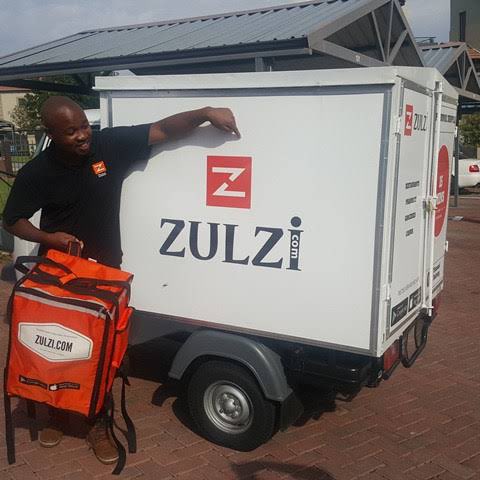South Africa’s Grocery Delivery Startup Zulzi Raises $1.6m To Transform Grocery Shopping Experience
Indeed, grocery shopping is one of the raves of the moment caused by the coronavirus pandemic. Further proving that funding is pouring into the ecommerce sector at the moment is the South Africa-based online grocery delivery startup Zulzi which has raised over $1.6 million from a Johannesburg Stock Exchange-listed company.

Here Is What You Need To Know
- Although founder Vutlharhi Valoyi prefers to keep the investor in this round anonymous — other than that it is a listed company and that the investment was concluded in March, 2020 just before South Africa’s Covid-19 lockdown commenced on 27 March — the funds only landed in the startup’s account last week, according to him.
- According to Valoyi, negotiations with the investor lasted for more than 4 months beginning in December 2019. Although he admitted that Zulzi had already received investment requests from a number of investors, Valoyi said the startup chose the listed company because it had the startup’s interests at heart.
- The startup previously secured a $54k investment from IDF Capital in 2017. This IDF Capital’s investment, said Valoyi, had already been bought out in 2019 by the startup.
A Look At What Grocery Startup Zulzi Does
- Founded in 2013 by Vutlharhi Valoyi, former staff of First National Bank of South Africa, Zulzi became fully operational 2016 when it was launched. Through the startup’s app, customers can get direct access to thousands of grocery items through a mobile app.
- Just like the Cape Town based OneCart, Zulzi allows customers to build their grocery lists and purchase items without ever visiting a store. Trained shoppers then handpick and deliver the items, transforming the grocery shopping experience.
- The startup currently services Pretoria, Johannesburg, Cape Town and Durban.
- Valoyi says that the startup’s app has now been downloaded 100 000 times since its launch.
- The company, he says, is now processing about 2000 orders a day (70% of these in Gauteng) and that in March this alone, it did $54k sales a day, up six times over the same period in 2019.
- About 99% of the startup’s orders are concluded via the mobile app, and just 1% are made on the web app, said Valoyi.

The Journey Of A Thousand Miles Begins With A Step
- Valoyi, who is originally from Giyani in Limpopo province, South Africa’s northernmost part, says the idea of building the business started after he began working at the First National Bank of South Africa. Making extra bucks off his pay and looking to convert them into even more extra money, he began selling secondhand books.
“In 2014 Zulzi was formed as an e-commerce company selling textbooks and electronic equipment to university students online,” he said in an interview back in 2018.
“In the second year of operation, we identified a gap in the market to provide a speedier service and reduced the delivery time to just 60 minutes. The response to this was phenomenal! We immediately saw a 30% spike in demand for our services and a significant increase in market share.”
- As things were going well, he then added other items such as food delivery and groceries.
- Then he took on board Michael Netshipise, a former colleague of Valoyi’s at FNB where the two previously worked, who had to close his analytics business and join Valoyi when he launched the Zulzi platform.
- Valoyi recalls that the business made over $271k in revenue in its first year.
“That encouraged me; that this online thing can work,” Valoyi says.
- But then he had to drop the food delivery arm of the business in 2017 because of the stiff competition he faced from more established industry giants, focusing only on offering grocery delivery.
- However, even grocery delivery comes with its own challenges, totally different from other types of delivery models.
- Most times, goods can go out of stock without any notice, Valoyi said. To get around this, he added a real-time messaging solution on the app so that shopper assistants who work for the startup can communicate directly with a customer.
- The startup charges a service fee that ranges from 0% to 12.5%, depending on who the retailer is. In addition, a flat fee of $2.5 is levied on deliveries. Deliveries are limited to within a 6km radius of the nearest grocery retailer.
- For Valoyi and Netshipise, it all must feel like a dream come true, testament again that opportunity does exist even in trying times such as these and that the journey of a thousand miles almost always begins with a simple step.
Charles Rapulu Udoh

Charles Rapulu Udoh is a Lagos-based lawyer who has advised startups across Africa on issues such as startup funding (Venture Capital, Debt financing, private equity, angel investing etc), taxation, strategies, etc. He also has special focus on the protection of business or brands’ intellectual property rights ( such as trademark, patent or design) across Africa and other foreign jurisdictions.
He is well versed on issues of ESG (sustainability), media and entertainment law, corporate finance and governance.
He is also an award-winning writer.

